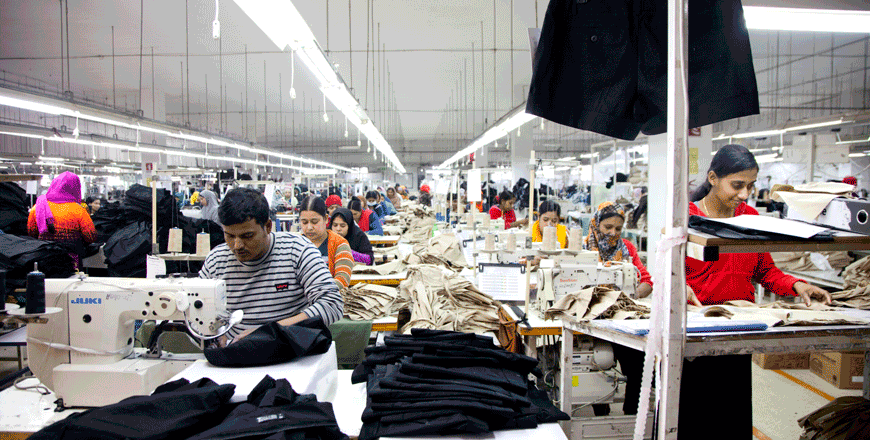You are here
Labour experts discuss challenges facing textile workers
By Maria Weldali - Feb 17,2025 - Last updated at Feb 17,2025

The discussion highlights the vulnerabilities of workers under subcontracting models (File photo)
AMMAN – Labour experts, professionals, and policymakers on Monday discussed the challenges facing textile and garment workers, particularly those employed under subcontracting agreements and in small and medium-sized sewing workshops.
The event, titled “Challenges Faced by Workers in the Textile and Garment Sector under Subcontracting Agreements and in Small and Medium-Sized Sewing Workshops,” provided a platform for key stakeholders to address the sector’s most pressing issues.
Organised by Tamkeen for Legal Aid and Human Rights, the session brought together representatives from government agencies, employers, worker unions, and industry experts to exchange insights and explore practical solutions aimed at improving labour conditions and ensuring the long-term sustainability of the sector.
The discussion highlighted the vulnerabilities of workers under subcontracting models, where employment terms are often unstable, social protections are lacking, and wages are inconsistent.
Employees in small and medium-sized workshops face challenges such as informal contracts, limited access to labour rights and few opportunities for career advancement, according to a statement from Tamkeen.
The session aimed to foster an open dialogue, to generate policy recommendations and strategies to improve the livelihoods of textile and garment workers, while strengthening the resilience of the sector as a whole.
The outcomes of this discussion could influence labour policies and industry practices, supporting both equitable economic growth and sustainable employment.
Vice Chairman of the Jordanian Association of Garment Exporters Sanal Kumar stressed the crucial role of the textile and garment sector in employment, noting its contribution to the local workforce.
He highlighted that the sector currently employs around 25,000 Jordanians, including 6,000 workers in rural areas, and plays a key role in attracting workers from regions with limited job opportunities.
President of the General Trade Union of Workers in the Textile Garment and Clothing Industry Fathallah Imrani reiterated the union’s commitment to supporting workers, emphasising the union’s ongoing efforts to improve workers’ rights and enhance their working conditions.
Other sector experts and stakeholders discussed the need to classify subcontracted factories into two categories, those not associated with exporting factories and those connected to global export chains that adhere to international compliance standards.
Participants also highlighted the importance of achieving greater production flexibility while addressing the sector’s various challenges.
Related Articles
AMMAN — Thousands of workers in Jordan's textile and garment industry are facing "harsh" conditions, with low wages and limited protections
AMMAN — Jordan's textile and garment industry, a cornerstone of the national economy, is facing significant challenges that threaten its sta
A new unified contract for all migrant workers in Jordan’s garment sector was announced at Better Work Jordan’s international buyers’ forum in the capital on Thursday.












